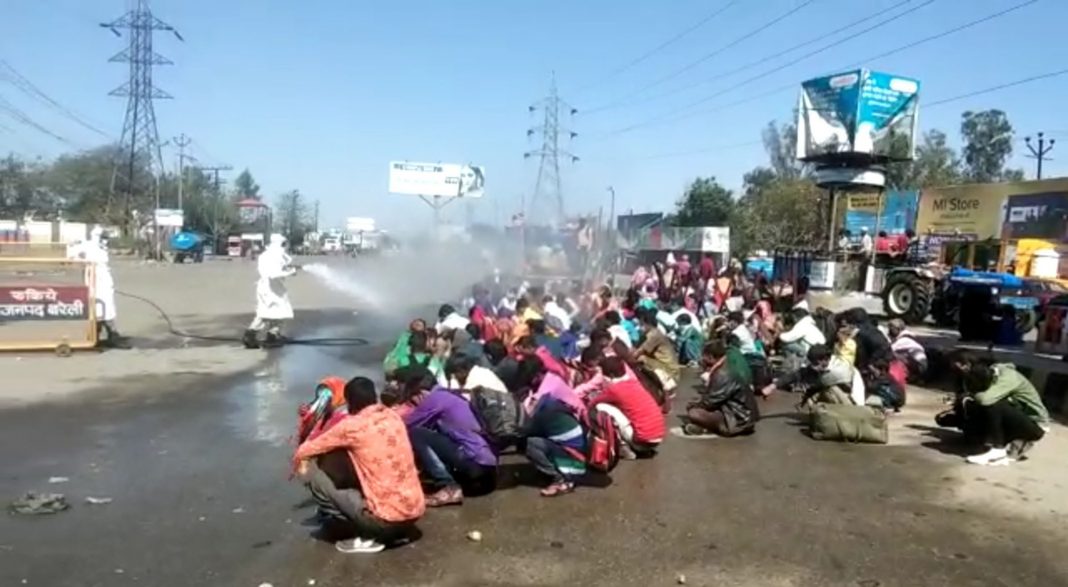While the Covid-19 pandemic does not discriminate between the rich and the poor, the efforts and attitude of some could control its impact. Though India seems to be doing better than many other countries, a blot on it has been the lack of planning for migrant workers. With the unanticipated lockdown announcement and no prior consideration made for this marginalised section, their conditions have led to misery and worsened with time.
And just when one thought that matters could not get worse, on May 8 news came of 16 migrants who were walking back to Madhya Pradesh being mowed down by a goods train. This focused media attention on the pathetic state of these migrants in these difficult times. Most of their basic rights for a dignified life as per the Constitution under Article 21 have been curtailed, leaving them the worst affected and least protected during this pandemic.
Marooned and left with no choice, they have tried to go back home on foot. And it is here that the role of the government and concerned authorities stands questioned. Were their lives so easy to be sacrificed for those at the helm of governance or was the mourning of their families any less?
As per the Economic Survey of India 2017, there are nearly nine million inter-state migrants every year in India. Though a nationwide lockdown probably was the need of the hour in the larger interests of public health, neglecting the fundamental right to life and personal liberty of this section cannot be compromised with.
Some tragic incidents have taken place due to the negligence of various state governments. One such incident took place when thousands of migrants thronged the bus terminal at Anand Vihar in Delhi owing to rumours that they would be taken home. Then followed the deplorable incident of some of these workers being sprayed with disinfectants at the border of Bareilly district in UP. Such an act can’t be justified in the larger public good and was condemned on social media and elsewhere.
Though a few lucky migrants were able to reach a safer place either on foot, trucks or buses, a majority were stranded in various cities with no means of survival as their daily wages had dried up. This led to protests in various cities, including Suncity Township in Sector 54, Gurugram, where labourers demanded that they be sent home. The police had to be called in to bring the situation under control.
While some state governments provided food and shelter, most migrants were unable to benefit from them as they either didn’t have ration cards or proper addresses. To counter such issues, the Delhi government introduced e-passes, forgetting that a smartphone with an internet connection was still a distant dream for these migrants. So while policies were there, implementing them at the grassroots level was a question mark.
Finally, after much wait, special trains took the migrants home early this month. But this too was not without controversy as fares were charged from the migrants in many cases, robbing them further of their dignity.
Nevertheless, different states have laid out their own policies for accepting the return of these migrants. States such as Gujarat, Odisha, West Bengal and Karnataka have been criticised for not accepting their workers back. In the political fallout between the host states and the home states and the fear that their going away could lead to a shortage of workers, some trains were cancelled.
Covid-19 has turned into a nightmare for these migrant workers and shown how severe is the rich-poor divide even in these testing times. Worse was in store as some states such as UP even brought out an ordinance for the suspension of labour laws for three years to attract industrial investments. The days are getting darker for these migrants.
—The writer is Assistant Professor (Law), Raksha Shakti University, Gandhinagar, Gujarat
Lead Picture: UNI


